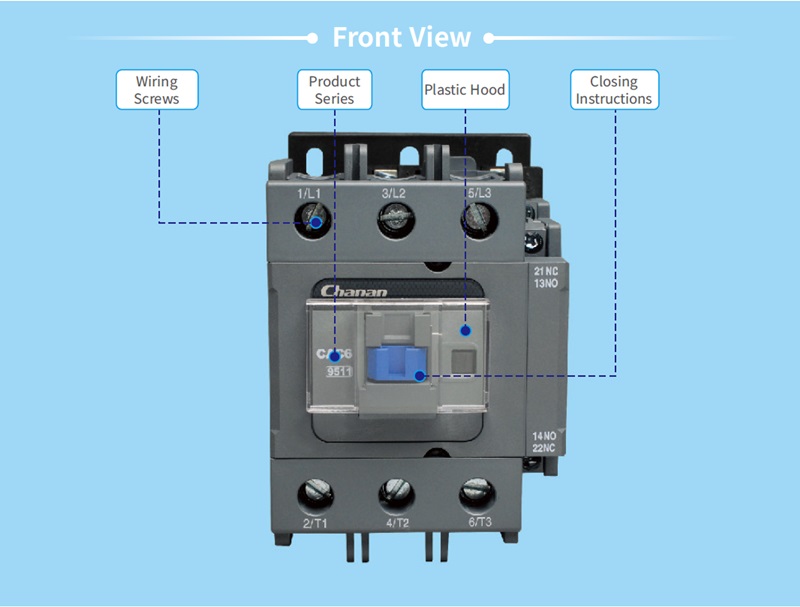In electrical control systems, contactors play a vital role in controlling the closing and breaking of main contacts. These electromagnetic relays are available in a variety of sizes, making them versatile devices that can be used in a variety of applications. In this blog, we will take an in-depth look at the features and benefits of contactors, especially AC contactors, and how they facilitate safe operation in high voltage and high current environments.
Safety and voltage control:
The AC contactor is specially designed to control high voltage, ensuring the safety of control circuits and operators. Their coil voltage specification is intentionally lower than the rated voltage of the main contacts. For example, when the rated voltage of the main contact is 380V, the coil voltage can vary among 36V, 110V, 127V, 220V and 380V. The low pressure control of this high pressure condition is realized through the automatic control mechanism of the contactor.
Current control:
Another notable feature of AC contactors is the ability to control large currents with small currents. While the main contacts can handle currents from 10A to larger values such as 60A, the design of the auxiliary contacts limits the current to less than 5A. This ensures safe operation of control circuits and minimizes risks associated with high current environments. The contactor effectively acts as an electromagnetic relay, ensuring reliable control of the electrical current.
Advantages of electrical control:
The main purpose in which contactors and electromagnetic relays were invented was to provide a safe way to energize and de-energize high voltage equipment. Contactors contribute to safer operation and increase reliability by effectively disconnecting low and high voltage controls. The relationship between electricity and magnetism allows contactors to efficiently handle the complex task of controlling high voltages and high currents while maintaining low voltage and small current inputs.
Application Versatility:
Due to its unique functions and advantages, contactors are widely used in various electrical control systems. Widely used in machinery, power distribution systems, industrial plants and HVAC systems, etc. Contactors can effectively and safely control electrical equipment to ensure smooth and reliable operation. The adaptability and versatile current handling capabilities of contactors make contactors an indispensable component in modern electrical systems.
in short:
Contactor technology provides a reliable means of controlling high voltage and large current with low voltage and small current, which has completely changed the electrical control system. By prioritizing safety and offering flexible coil voltage and current control specifications, contactors ensure smooth and safe operation of equipment and provide safer operation for control circuits and operators. With the growing need for efficient and reliable control mechanisms, contactors remain an integral part of electrical control systems.

Post time: Aug-07-2023
